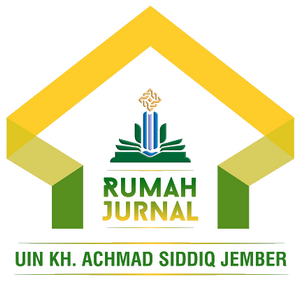Sustainable Practices in Islamic Education: Implementation and Impact in Traditional Islamic Boarding Schools
DOI:
https://doi.org/10.35719/ijibs.v2i2.44Keywords:
Sustainable education, curriculum, boarding school, CIPP model, co-curricularAbstract
Sustainable education has become increasingly crucial in addressing global challenges, particularly those related to environmental degradation. Despite its prominence in academic discourse, its application within Islamic boarding schools (pondok pesantren) remains underexplored, creating a gap that necessitates thorough examination. This study aims to evaluate the implementation of sustainable education within Islamic boarding schools, focusing on supporting and inhibiting factors. Using a qualitative approach, this research employs the CIPP (Context, Input, Process, Product) evaluation model to analyze data collected from interviews, observations, and document reviews. Findings reveal that sustainable education in the context of an Islamic boarding school manifests in three dimensions: intracurricular activities integrating environmental themes into religious education, extracurricular activities such as a Smart Cooking Class, and co-curricular initiatives like the Pancasila Student Profile Strengthening Project (P5). However, challenges persist, including uneven teacher competencies in embedding sustainability values and a narrow focus on specific activities and subjects. The study highlights the need for a broader integration of sustainability principles across disciplines and educational contexts. This research contributes to the field by providing a nuanced understanding of sustainable education implementation in Islamic boarding schools and offers recommendations for enhancing its scope and effectiveness in similar educational settings.
References
Al-Hiti, M W R. “Reliance and Its Significance in the Holy Qur’ān: An Objective Study.” Dirasat: Human and Social Sciences 50, no. 6 (2023): 72–82. https://doi.org/10.35516/hum.v50i6.7042.
Anggraini, Dewi, and Siwi Nugraheni. “Menuju Pendidikan Berkelanjutan: Implementasi Tujuan Pembangunan Berkelanjutan (SDGs) Dalam Mewujudkan Pendidikan Berkualitas Di Indonesia.” Jurnal Pendidikan Tambusai 1, no. 3 (2024).
Apriliana, Evita Nur. “Pesantren Bilingual Berbasis Karakter Salaf: Sebuah Prototype Pendidikan Berkelanjutan pada Era Global.” Prosiding AnSoPS (Annual Symposium on Pesantren Studies) 01 (2022): 68–90.
Apriliana. “Pesantren Bilingual Berbasis Karakter Salaf: Sebuah Prototype Pendidikan Berkelanjutan pada Era Global.”
Asdlori, Asdlori. “Pendidikan Islam Sebagai Pilar Pembangunan Berkelanjutan: Peran Sistem Pendidikan Pesantren Dalam Implementasi SDGs.” Jurnal Pendidikan Islam Al-Ilmi 6, no. 1 (May 28, 2023): 124. https://doi.org/10.32529/al-ilmi.v6i1.2530.
Asdlori. “Pendidikan Islam Sebagai Pilar Pembangunan Berkelanjutan.”
Bahri, Moh Samsul, and Hasan Baharun. “Sustainability Education in Pesantren; Understanding the Role of Shadow Organizations in Achieving Sustainable Development.” Journal of Research in Educational Management 2, no. 2 (2023): 60–71.
Bahri, Syamsul, Wati Oviana, and Soga Billiyan. “Peningkatan Keterampilan Proses Sains Siswa Melalui Penerapan Pendekatan Keterampilan Proses Pada Mata Pelajaran IPA Di Kelas V MI.” Kalam: Jurnal Agama Dan Sosial Humaniora. Lembaga Studi Agama dan Masyarakat Aceh, 2021. https://doi.org/10.47574/kalam.v8i2.95.
Brown, A. L. “Transforming Schools into Communities of Thinking and Learning about Serious Matters.” American Psychologist 52, no. 4 (1997): 399–413. https://doi.org/10.1037/0003-066X.52.4.399.
Devi Milasari, and Nursiwi Nugraheni. “Integrasi Pendidikan Konservasi Dan Teknologi Untuk Mewujudkan Pendidikan Inklusif Dan Berkualitas Dalam Pencapaian SDGs.” Jurnal Penelitian Pendidikan Indonesia (JPPI) 1, no. 3 (2024): 119–125.
Fitria, Ulfi Sayyidatul, Fachruddin Azmi, and Nurika Khalila Daulay. “The Implementation of Character Education Management in Madrasah.” Jurnal Basicedu 6, no. 4 (May 7, 2022): 5557–68. https://doi.org/10.31004/basicedu.v6i4.3028.
García-Feijoo, M., A. Eizaguirre, and A. Rica-Aspiunza. “Systematic Review of Sustainable-Development-Goal Deployment in Business Schools.” Sustainability (Switzerland) 12, no. 1 (2020). https://doi.org/10.3390/SU12010440.
Hasibuan, Nelson, Uswatun Khasanah, and Shofia Nurun Alanur. Transformasi Pendidikan Karakter: Menuju SDM Unggul Dan Berkelanjutan. Sukoharjo: Tahta Media, 2024.
Huda, Mokhammad Miftakhul, and Muhammad Nabil Musyarrof. 2023. “Ma’had Aly: Integration of Islamic Universities and Islamic Boarding Schools”. IJIBS 1 (2):135-56. https://doi.org/10.35719/ijibs.v1i2.24.
Jauhariyah, Nur Anim, et al. “Pengembangan Pemberdayaan Ekonomi Pesantren Melalui Pengelolaan Sampah Secara Berkelanjutan.” LOYALITAS: Jurnal Pengabdian Kepada Masyarakat 6, no. 1 (May 31, 2023): 116–27. https://doi.org/10.30739/loyalitas.v6i1.2250.
Kementerian Pendidikan, Kebudayaan, Riset, dan Teknologi. “Keputusan Kepala Badan Standar, Kurikulum, Dan Asesmen Pendidikan Kementerian Pendidikan, Kebudayaan, Riset, Dan Teknologi Nomor 009/H/KR/2022 Tentang Dimensi, Elemen, Dan Subelemen Profil Pelajar Pancasila Pada Kurikulum Merdeka.” Kemendikbudristek, 2022.
Khasanah, Nur, Achmad Irwan Hamzani, and Havis Aravik. Pesantren Salafiyah Dalam Lintasan Sejarah. Pekalongan: Nasya Expanding Management, 2022.
Khusna Shilviana, and Tasman Hamami. “Pengembangan Kegiatan Kokurikuler dan Ekstrakurikuler.” PALAPA 8, no. 1 (May 17, 2020): 159–77. https://doi.org/10.36088/palapa.v8i1.705.
Luthar, S. S., N. L. Kumar, and N. Zillmer. “High-Achieving Schools Connote Risks for Adolescents: Problems Documented, Processes Implicated, and Directions for Interventions.” American Psychologist 75, no. 7 (2020): 983–95. https://doi.org/10.1037/amp0000556.
M García-Feijoo, A Eizaguirre, and A Rica-Aspiunza. “Systematic Review of Sustainable-Development-Goal Deployment in Business Schools.” Sustainability (Switzerland) 12, no. 1 (2020). https://doi.org/10.3390/SU12010440.
Ma’rifataini, Lisa’diyah. “Pengaruh Kegiatan Intrakurikuler dan Ekstrakurikuler Terhadap Pembentukan Karakter Siswa Sekolah Menengah Atas Negeri (SMAN) 09 Bandar Lampung.” EDUKASI: Jurnal Penelitian Pendidikan Agama dan Keagamaan 14, no. 2 (March 2, 2017). https://doi.org/10.32729/edukasi.v14i2.16.
Manaf, A. “Rekonstruksi Pendidikan Boarding School Di Indonesia.” Ad-Da’wah 20, no. 1 (2022): 51.
Maulida, Syahdatul, and Mahbubi Ali. “Pesantren in Indonesia and Sustainable Development Issues.” The Economic Review of Pesantren 2, no. 1 (2023).
Milasari, Devi, and Nursiwi Nugraheni. “Integrasi Pendidikan Konservasi Dan Teknologi Untuk Mewujudkan Pendidikan Inklusif Dan Berkualitas Dalam Pencapaian SDGs.” Jurnal Penelitian Pendidikan Indonesia (JPPI) 1, no. 3 (2024): 119–125.
Mulyono, R. “Analisis Implementasi Kurikulum Merdeka Belajar Untuk Mempersiapkan Pembelajaran Abad 21.” Didaktik: Jurnal Ilmiah PGSD STKIP, 2022. http://journal.stkipsubang.ac.id/index.php/didaktik/article/view/392.
Mutia Insani, Wagino Hamid Hamdani, and Asep Sopian. “Upaya Peningkatan Maharah Kalam Melalui Kegiatan Intrakurikuler Muhadharah.” An Nabighoh: Jurnal Pendidikan Dan Pembelajaran Bahasa Arab. IAIN Metro Lampung, 2021. https://doi.org/10.32332/an-nabighoh.v23i1.2281.
Ngabekti et al. “Pendidikan Untuk Pembangunan Berkelanjutan Di Pondok Pesantren.”
Ngabekti, Sri, et al. “Pendidikan Untuk Pembangunan Berkelanjutan Di Pondok Pesantren.” Proceeding Biology Education Conference: Biology, Science, Enviromental, and Learning 9, no. 1 (2011): 347–52.
Nousheen, Ayesha, et al. “Education for Sustainable Development (ESD): Effects of Sustainability Education on Pre-Service Teachers’ Attitude towards Sustainable Development (SD).” Journal of Cleaner Production 250 (March 2020): 119537. https://doi.org/10.1016/j.jclepro.2019.119537.
Nurdiani, Laily Novika, and Aziz Muslim. “Analisis Pengelolaan Sampah Di Pondok Pesantren Ibnul Qoyyim Putri Sebagai Implementasi Tujuan Pembangunan Berkelanjutan.” Jurnal Pengendalian Pencemaran Lingkungan (JPPL) 4, no. 2 (2022): 38–50.
Paucar-Caceres, A., et al. “Using Soft Systems Methodology to Align Community Projects with Sustainability Development in Higher Education Stakeholders’ Networks in a Brazilian University.” Systems Research and Behavioral Science 39, no. 4 (2022): 750–64. https://doi.org/10.1002/sres.2818.
Permana, U., and A. Rahmawati. “Designing a Citizenship Education Curriculum Based on the Concept of Merdeka Belajar Kampus Merdeka (MBKM) in Higher Education.” Scaffolding: Jurnal …, 2023. https://ejournal.insuriponorogo.ac.id/index.php/scaffolding/article/view/2627.
Purnomo, Joko. Pemberdayaan Masyarakat Pesantren Melalui Program Pesantren Ramah Lingkungan Menuju Pembangunan Berkelanjutan (Studi Kasus Pondok Pesantren Modern Islam Assalaam). Dissertation, Solo: UNS, 2024.
Rifqi Setiawan, Adib. “Financial Literacy Education Through Fiqh Mu’āmalāt Learning Based on Kitab Kuning.” Center for Open Science, 2020. https://doi.org/10.31237/osf.io/8pehj.
Sayyidatul Fitria, Ulfi, Fachruddin Azmi, and Nurika Khalila Daulay. “The Implementation of Character Education Management in Madrasah.” Jurnal Basicedu 6, no. 4 (May 7, 2022): 5557–68. https://doi.org/10.31004/basicedu.v6i4.3028.
Setiawan, Adib Rifqi . “Financial Literacy Education Through Fiqh Mu’āmalāt Learning Based on Kitab Kuning.” Center for Open Science, 2020. https://doi.org/10.31237/osf.io/8pehj.
Setyaningrum, Heny Sri, and Ali Mokhtar. “Strategi Pengelolaan Sampah Di Pondok Pesantren Al Fatah, Temboro, Karas Magetan Yang Berkelanjutan.” Seminar Keinsinyuran Program Studi Program Profesi Insinyur 3, no. 1 (May 3, 2023). https://doi.org/10.22219/skpsppi.v3i1.10971.
Shilviana, Khusna, and Tasman Hamami. “Pengembangan Kegiatan Kokurikuler dan Ekstrakurikuler.” PALAPA 8, no. 1 (May 17, 2020): 159–77. https://doi.org/10.36088/palapa.v8i1.705.
Siburian, G. “Analisis Konseptual Landasan Pendidikan Dalam Konteks Pembangunan Pendidikan Berkelanjutan.” Jurnal Pendidikan Tambusai 8, no. 1 (2024): 4935.
Stein, Sharon, et al. “‘Education for Sustainable Development’ to ‘Education for The End of The World as We Know It.’” In Education for Sustainable Development in the ‘Capitalocene’, 51–64. Routledge, 2023.
Sterling, Stephen, and David Orr. Sustainable Education: Re-Visioning Learning and Change. Vol. 6. Totnes: Green Books for the Schumacher Society, 2001.
Sterling, Stephen. “Sustainable Education.” In Science, Society and Sustainability, 127–40. Routledge, 2010.
Stufflebeam, Daniel L. “The CIPP Model for Evaluation.” In Evaluation Models: Viewpoints on Educational and Human Services Evaluation, 279. Dordrecht: Springer Netherlands, 2000.
Stufflebeam, Daniel L., and Guili Zhang. The CIPP Evaluation Model: How to Evaluate for Improvement and Accountability. The Guilford Press, 2017.
Stufflebeam. “The CIPP Model for Evaluation.”
Syakur, Moh, and Hasmi Hashona. “Analysis of the Use of the Miftah Lil Ulum Method in Learning the Kitab Kuning for Children.” TA’DIBUNA: Jurnal Pendidikan Agama Islam. Universitas Islam Sultan Agung, 2022. https://doi.org/10.30659/jpai.5.2.138-145.
Yi̇ği̇t, Serkan. “Is It Possible to Get to Know a Culture through Cooking Classes? Tourists Experiences of Cooking Classes in İstanbul.” International Journal of Gastronomy and
Downloads
Published
Issue
Section
License
Copyright (c) 2024 Muhamad Zulfar Rohman, Ilma Husnul Khotimah

This work is licensed under a Creative Commons Attribution-NonCommercial 4.0 International License.
License
1. Author’s Warranties
The author warrants that the article is original, written by stated author/s, has not been published before, contains no unlawful statements, does not infringe the rights of others, is subject to copyright that is vested exclusively in the author and free of any third party rights, and that any necessary written permissions to quote from other sources have been obtained by the author(s).
2. Miscellaneous
IJIBS will publish the article (or have it published) in the journal if its editorial process is successfully completed and IJIBS or its sublicensee has become obligated to publish it. IJIBS may conform the article to a style of punctuation, spelling, capitalization, and usage that it deems appropriate.

















 IJIBS licensed under Creative Commons Attribution-NonCommercial 4.0 International License.
IJIBS licensed under Creative Commons Attribution-NonCommercial 4.0 International License. 